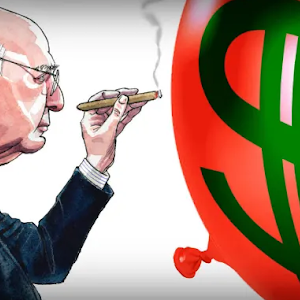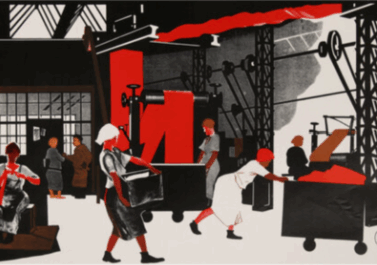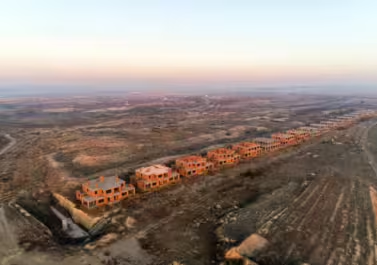
An input for a Bristol meeting on the cost of living crisis, June 2022
On Saturday 18th of June, there’s a national TUC demo in London, and as part of the build up, we were invited to sit on a panel hosted by the People’s Assembly called ‘Wages Up, Bills Down, Tories Out’. We were joined by six other panelists from the RMT, Bristol Co-operative Alliance and the Tribune, Bristol Trades Council and the NEU, the TUC and PCS, the Green and Labour Councillors for Ashley Ward, and the Secretary for Unite South West, who chaired the meeting.
Below is the transcript of the input from one AngryWorkers comrade about the current crisis, followed by a report from a comrade on the meeting in general.
***
I work as a housekeeper at Southmead hospital and I am a GMB rep there. I previously worked for several years in warehouses and food factories. I can see every day how people who earn around the minimum wage are struggling more.
I think we’re in a crisis in more ways than one. It’s a cost of living crisis, yes. It’s also coinciding with a long-running crisis of working class organisation and militancy (e.g. the fact that NHS workers can’t even enforce an actual pay rise, despite all the public support and the fact that we slogged our guts out in the pandemic, says a lot). And it’s also a crisis of the system where there aren’t any obvious answers.
The left largely focuses on state-led policy fixes:
1. You can try and spend your way out of it (that’s led to the stagflation situation we’re now in and it doesn’t actually stop prices from going up).
2. You could call to redistribute income, fine, or nationalise everything, but the danger is that you get capital flight and more precarity on the international markets, the state is just used to bail out the private sector and it doesn’t guarantee better working conditions for workers in those industries.
3. What about a Green New Deal? This is an attempt to resurrect the Keynsian government policies of the US in the 30s as they tried to get out of the Great Depression. But what many people forget is that it was actually rearmament for WWII that actually solved the crisis of the Great Depression rather than just these New Deal policies per se. We can see the same thing happening now, various supposedly ‘left forces’ such as the German Green Party are quick to abandon the ‘Green’ bit and vote in favour of 100 billion euros in military spending. Podemos in Spain just announced that it was doubling its military budget to 24 billion euros – the largest military spending in Spain’s history. Many sections of the ruling class are using the war in Ukraine as an excuse for inflation and re-militarisation. There are not enough critical voices amongst the left and the labour movement about the increasing militarisation of all our governments and that workers have little interest in risking their lives to fight the Russian army if a neoliberal shock, unemployment and destitution will be their post-war prize.
So, in the wider scheme of things, it won’t just be a question of ‘better policy ideas’, especially in the scary geopolitical context we now find ourselves in. Focusing on ‘policy fixes’ is failing to prepare workers for what’s coming:
By ‘preparation’, we mean in two senses:
* radical measures that the ruling class will have to undertake;
* radical measures that our class will have to undertake to actually enforce the radical political changes that are actually going to make our lives better.
On the first point: historically, inflation signals we’re in a kind of waiting room. Prices are rising as a result of a crisis or imbalance in the system, and we’re nervously waiting for a response: which will inevitably include some kind of attack and preparation for radical restructuring – many times historically this has included war as we’re also seeing now.
In the 70s, the US enacted the Volcker Shock that saw massive double digit hikes in interest rates in the UK, the crisis was allowed to rip through society, destroying livelihoods. There’s nothing to say this won’t happen again – what, if anything, are the unions and the left doing to prepare workers for this?
With reference to the second part, preparing workers for the inevitable enforcement of the radical political changes that are going to be necessary to tackle this crisis:
If we look to the past, we can see that some groups of workers in the 70s facing a similar situation, knew that they, as workers, had to enforce social changes and lower prices themselves. In Italy e.g. groups of workers would go en masse to the supermarket and let people take the food for cheaper set prices. Workers themselves enforced lower energy and transport prices. There was a realisation that wage struggles have to move to a wider social level in order to really defend ourselves.
So how can we get to that point of having more confident workers? It would mean having to be honest about the limitations of legal strikes. Finding new ways to circumvent them. It would mean that in this current situation of labour shortage in some sectors and job cuts in others, using the power of one group of stronger and more confident workers to defend weaker workers. This didn’t happen during the recent fire and rehire struggles at Heathrow airport, where one of our collective works. There, you had the situation where passenger jet workers and cargo workers were facing cuts at the same time. But cargo had more clout – they had continued to work, and work overtime, during the pandemic, as they were kept busy with all the PPE coming in from China for example. Most passenger jets were grounded and there was no work for these workers. UNITE signed a good deal for Cargo workers, but, despite representing passenger jet staff too, left them to face their cuts alone. All other unions would have done the same. But more of us should be asking if our unions are willing or able to widen and generalise struggles, and if not, how workers could start thinking about how to do it themselves.
In light of all that, what are our proposals?
As a collective we look at where we can support workers to break out of their isolated disputes and reach out to other groups of workers. For example, there was a missed opportunity when GKN workers (automotive and aerospace manufacturers) in Italy and the UK faced closures at the same time. Workers in Italy occupied their factory, did bigger demos, became a pole for all local workers facing tough times. This was qualitatively different to GKN workers in Birmingham who were facing factory closure and led a pretty defensive struggle, appealing simply to the government to ‘protect British quality’. There was no attempts to link up both of these struggles, neither did even the UK struggle spread to other GKN workers in the UK, including at the plant in Bristol.
Practically, as AngryWorkers in Bristol, we’re trying to:
– build links between different groups of workers so that there is more potential for practical solidarity (cross-union workplace campaigns in the hospital where we work and we’re trying to link up with warehouse workers in Avonmouth);
– we try and link our workplace groups to solidarity networks outside of work;
– we publish independent news about workers’ experiences that we distribute to workers directly so we can speak honestly about our struggles – what worked and what didn’t so we can actually learn something from them rather than just wave a flag and pronounce a victory;
– we’re especially interested in struggles that question the divisions within the class e.g. between permanent and temp workers, or workers with different contracts;
– we try and bring relevant international news to local workers e.g. the strike by base union workers in Italy recently against the war in Ukraine or workers who’ve gone on strike in the same sector where we can learn something e.g. Berlin nurses.
If anyone is interested in this quite basic but essential building block work, get in touch!
***
Report from the meeting itself by another AW comrade
Let’s be honest – we were definitely something of an outlier, and felt a little out of place in the hushed executive environment of Unite’s Bristol offices, but it was an opportunity to add our voice to a broader conversation about the cost of living crisis, and to gauge the general feeling of, and tactics, being employed by the left.
As it actualised, the discourse was dominated by anti-Tory, anti-austerity rhetoric. As to be expected, unions were very much presented as the dominant mode of struggle and the conversation centered on mobilising around our ‘mutual enemy’, the Conservative government (although there was a fair bit of Labour bashing too).
The cost of living crisis
One thing we did find consensus on was the lived reality of the crisis. Fuel prices are rising at astronomical rates, in some instances reaching 202.9p a litre, the ONS estimate that 92% of the British population will see grocery bills increase by 39% and a 4.5% fall in annual wage growth, and in March the TUC predicted that energy bills are set to rise 14 times faster than wages this year. Things are going to shit, there’s no doubt about it. But what does this look like in concrete terms for the working class?
The Labour Councillor for Ashley Ward gave some examples from her constituency, referring to older members of the community who spend their day on the bus to avoid using their heating, and teachers feeding hungry children just so that they can concentrate in the classroom. The increasing normalisation of foodbanks was mentioned several times and obviously the bulk of the discussion was centered around the crisis’ impact on workers, from pay freezes to job cuts.
Why are we experiencing a cost of living crisis?
The general feeling of the other speakers on the panel was that the crisis is the result of political decisions made by the Tory party. Some conceded that capitalism is playing a role, but that ultimately the ruling elite have chosen to inflict this crisis on us. Speakers looked to countries like France, where the average rate of inflation rests at 3.95% in comparison to the UK’s 7%, to argue that Tory attempts to blame COVID-19 and Ukraine are merely smokescreens distracting us from behind-the-scenes political game-playing. What this perspective fails to take into consideration is that capitalism, with its contradictions, contains crises, which are so much bigger than the political players that it wields for its own proliferation. The bosses and the ruling class, whilst often corrupt and terrible people, aren’t powerful enough to control capital – it is propelled by its own logic, a logic by which they are dictated, and which, by its very nature, extracts and exploits.
The co-founder of the Bristol Co-operative Alliance argued that privatised energy companies are driving inflation, and that the Bank of England, as an entity distinct from the government, is squeezing workers. The problem isn’t the size of inflation per se, but the fact that wages aren’t going up accordingly. This feeling has certainly been reflected by the growing number of inflation-related pay disputes, be that with the RMT rail action, the striking Arriva bus drivers in Yorkshire or unrest at BT. This panelist then went on to talk about the Phillips Curve, which proposes an inverse relationship between inflation and unemployment: the Bank of England is seeking to increase unemployment in order to keep down soaring inflation rates, all to protect finance’s interest. He also alluded to an absence of a strong push back from workers, noting that only 20% of workers in the private sector are unionised (in fact, it’s even lower at 13%, while at around 50% for public sector workers). We mentioned a lack of worker militancy as a factor behind the crisis, but I’d argue that those statistics aren’t necessarily indicative of inertia, as demonstrated by last month’s wildcat strikes on North Sea oil and gas rigs, which were staged across 16 platforms and involved thousands of workers without a union mandate. The problem is more that certain groups of workers feel more confident than others, and are able to win double digit pay increases, but that these remain isolated and seek to link up with other sections of the labour market, who are less organised.
What’s the solution?
The main proposals that arose from the discussion were, perhaps predictably: the nationalisation of public services, building union power and redistribution.
On the theme of union power, both the NEU and PCS spoke about their upcoming national pay campaigns, where they’ll hope to gain the necessary 50% mandate and ballot their workers for strike action. There was also a recurring insistence that they need to build across campaigns and reach out in solidarity with other unions, which was reflected most obviously in the preparations for Saturday’s demo, which is promoted as a means of building a strong cross-industry voice of dissent. PCS mentioned the student solidarity group who occupied the Wills Memorial Building in February of this year and managed to make some important gains for the UCU dispute as an important example.
The Green Councillor for Ashley Ward urged for short term solutions of a windfall tax on energy companies, a £15 minimum wage (which came up a few times), inheritance tax, and direct action like that of XR. For the long term, he listed other policy reforms like addressing housing inefficiency, wealth redistribution and rebuilding workers’ rights, making reference to gig economy workers like couriers and outsourced workers. Others talked about an increase in pensions and benefits, and corporation tax.
One audience member asked whether food should be made a human right as a means of combating the global food crisis. But rights are part of a reformist agenda: they’re something that are meted out by the powers that be, that can be given and taken away. Should we not struggle for a world where we don’t need to be given permission to have our basic needs met, because we have unmediated access to our world’s resources?
Ultimately, without the abolition of the wage-relation, the precursor of which is for workers themselves to enforce the changes necessary by taking control of production, we have no chance of overcoming austerity. As long as value production prevails, governments can come and go, but capitalism and the exploitation of our class, and cuts to our services, will continue. These suggestions for reform will never, and aren’t intended to, lead us to social revolution.
Anti-strike legislation
One of the hot topics of the meeting was the government’s rising tide of increasingly anti-strike legislation. The RMT regional officer fielded a lot of questions about how this has impacted recent disputes and their upcoming national rail strike. Transport Secretary Grant Shapps recently announced that disruptive action like the tube strikes could be avoided in the future by changing legislation to allow companies to bring in agency workers as effectively scab labour, which the RMT perceived as worker being turned against worker, divide and conquer tactics wielded by the government. When asked how they felt about plans to bring in agency workers, they replied that it poses less of a threat to more ‘highly trained’ professions like signalling and more to those in jobs with a shorter training period. They reported to have achieved the high-threshold mandate for their upcoming national action by using things like phone-banking, WhatsApp groups and union officials on the ground.
Some of the panelists dealt with these attacks on industrial action by insisting that strikes are a last resort: workers don’t want to strike, but do it out of financial necessity, and would rather that issues were solved by negotiation with the bosses. It’s unsurprising that, in the face of current anti-union media smear campaigns, the unions involved would want to appease disgruntled consumers and commuters. But our struggle isn’t something to be ashamed of: it’s our means of building class power, something we should be cultivating in our workplaces all of the time, with small and daily acts of resistance.
And as our AngryWorker comrade on the panel pointed out, there are ways of circumventing legal strikes. More often than not, attempts at strike action which go through all of the conventional union channels are either cut short at the negotiation phase or find themselves pacified and sold out by paid union officials, against the will of frustrated workers. This is why other unofficial tactics should be explored, be they slowdowns, sabotage and working to rule: there are so many other ways of causing chaos that don’t involve the legally sanctioned strike.
Conclusions
It was definitely good to meet others on the left who are exploring this question of crisis and where we go from here. But I think we were left with the sense that we were coming from different paradigms, and weren’t sure if we quite perforated the conversation. When you have different means and different ends (that age-old question of reform or revolution!), it can be hard to have a meaningful discussion, especially on a panel of six other people with more homogenous ideas
Despite a common feeling among attendees that the Labour Party no longer remains a productive site of struggle, the lack of visible alternatives leaves people a bit stuck in the same ideas about solutions: big shows of discontent like marching on Westminster (which generally brings out the ‘usual suspects’ and can be a bit ritualistic); calling for a national strike (without a discussion about how we could actually get there in terms of analysing the composition of the current labour market, how different groups of workers can build their strength, what barriers would need to be overcome etc.); calling on the government to cushion the blow and make different political choices (despite knowing that this crisis is a global one about capitalism itself); and calling on more people to join trade unions (despite the fact that they’ve been unable to keep up with the pace of change in the labour market and are constrained by legal measures).
Growing activity in mainstream unions is definitely not a bad thing: it shows that workers across the country are less willing to put up with the bullshit, and suggests that there are some fruitful sites of struggle to be navigated. What we wanted to get across was that struggle can, and often more successfully, takes place outside of suffocating bureaucracy, where workers can self-organise in more creative ways. Whether this hit home, it was hard to tell.



